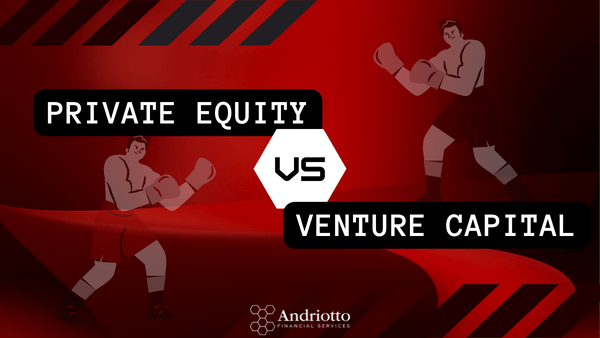The existing differences between venture capital and private equity mainly relate to the objectives set by the related funds. Venture Capital, in fact, was born as a subcategory of private equity.
Private equity (PE) refers to all transactions carried out by institutional investors in companies that already have a consolidated history behind them and need financial partners to carry out a restructuring, change ownership or carry out development plans (for example expand internationally).
Venture capital (VC), on the other hand, deals with transactions carried out by institutional investors (funds of various kinds) that enter the capital of a company in the start-up phase (start-up) or that is going through a period of expansion.
Private Equity
It refers to investment operations in generally unlisted companies, performed by professional operators, through participation in the company’s risk capital. These are, therefore, activities of making lasting and significant shareholdings in the capital of companies. The aim is to increase the participation value in the mid-term. And, then, achieve a substantial gain at the time of the disposal of the same.
To find private equity legally, focus on its traits in mergers and acquisitions deals. Look at aspects of these strategic corporate finance operations.
Depending on the phase in which the participation takes place, there are three types of Private Equity:
- Growth capital: contributing to the growth of companies
Growth capital typically refers to investments in established companies that need capital to expand or restructure businesses. This type of capital requirement may also include financing an acquisition or entering a new market without changing control of the company. - Leveraged buyouts: financially accompanying acquisitions
Leveraged buyout (LBO) refers to the purchase of all or a large part of a company or division through the equity of a small group of investors in combination with a significant amount of third-party capital. Leveraged buyout targets typically include mature companies that generate strong operating cash flow, resulting in high revenue. - Venture capital: supporting start-ups at the beginning of their journey
The term venture capital refers to equity investments in companies that are still young to finance their start-up, early development, or expansion.
Venture Capital
It is an investment operation in the risk capital of companies, generally unlisted, through the temporary acquisition of shareholdings. The aim is to divest them over a medium-long time period (3-10 years) and realize a capital gain from the increase in the value of the company, after having financed it in its: i. initial phase (early stage) or ii. development (expansion financing).
In the initial phase, the intervention aims to support the startup phases of the company by providing capital, administrative organization, or a patent business (generally technological). There is a very high-level risk component. Basically, it involves testing a new entrepreneurial formula on the market.
Regarding development, on the other hand, the transaction supports a growth plan. Investors achieve this by acquiring another outside company, through a capital increase or convertible bond loan, with relatively greater risk containment. The involved product is already present on the market. And the involved operation is limited to guaranteeing mere support for the development of an already mature company. Therefore, the transaction here has the nature of advice rather than financial.
In Switzerland, the Swiss Private Equity & Corporate Finance Association (SECA) brings together venture capital providers. At the European level, venture capitalists are organized in Invest Europe (formerly known as EVCA).
Private Equity versus Venture Capital
Here lies one of the main differences between Venture Capital and Private Equity. In perspective, the preliminary assessment of the feasibility of the financed plan acquires a greater significant value than the investment in a Private Equity fund. And this is in consideration of the greater risk that the venture capitalist agrees to face not his own investment.
Fast obsolescence or failure against rivals pose risks, especially for tech products. Needed refinancing or inability to withdraw early capital loom if growth goals aren’t met.
For more, read our previous article about Venture Capital (Italian):
At AFS, we are passionate about fostering innovation and empowering ambitious minds to flourish. Our mission is to provide best-in-class financial services for traditional and crypto deals, exploit European grants, and use quantitative methods to improve clients’ performance. We aim to help our customers unlock their full business potential.
Are you looking to fund your next venture or unlock grant opportunities?
Contact us at [email protected]!


